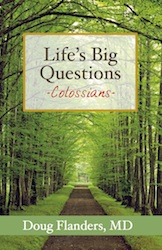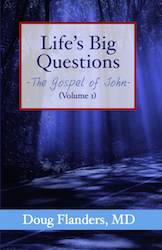
Photo Source: https://www.pexels.com/photo
There are six things that go into making milk chocolate: cocoa powder, cocoa butter, vanilla, lecithin, sugar, and powdered milk.
If you want dark chocolate, which tastes more bitter, remove the milk. If you want white chocolate, remove the cocoa powder. In similar fashion, if you want chocolate peanuts, add peanuts. Chocolate toffee, add toffee.
Every recipe has its ingredients. Take away an ingredient, and you have something entirely different. Add an ingredient, and you get something else as well. To be sure, they may be similar products, but they aren’t identical.
- What if you made substitutions to the chocolate recipe above—ketchup instead of powdered milk, for instance—would that work? What if you added non-food items, like sand instead of vanilla?
- Have you ever made these kinds of mistakes in the kitchen? Did you serve the altered recipe to guests before realizing your mistake? What was the result?
When it comes to the gospel message, there are two basic errors that people make. The first is to remove ingredients. The second is to add them.
That’s the problem Paul addresses in Colossians 2:16-23: the attempt some were making to add dietary and holiday rules to the gospel.
- What are some ingredients that people have tried to remove from the gospel over the years?
- Was Christ’s divinity one of your answers? Unbelievers commonly claim that Christ was a wise teacher, but not God. Does He give us this option?
- What about miracles? Thomas Jefferson cut all the miracles out of his Bible. Do modern philosophers do the same by trying to explain the miracles away?
- What about sin? People like to reclassify certain trendy or popular sins as non-sins, so that they can keep doing them without repentance or guilt. Can you think of a few modern examples? Does “tolerance” benefit the sinner in the long run?
- What about the concept of Hell and eternal separation from God? Do people sometimes try to deny these things? What would be their motivation?
When you walk through the streets of Rome and review its history through its art, there are a few interesting things that come to light. For example, the way angels are depicted during the rule of Constantine is very ambiguous. The angels are neither the chubby little Cupids of Greek mythology, nor the frightful giants of the Bible who must constantly say, “Do not be afraid!”
They are a blend.
Constantine wanted both his pagan population and his ever-growing Christian population to be able to look at the very same artwork and still feel comfortable. Likewise, idols built to gods and goddesses were not torn down, but merely relabeled as patron saints. The pagans would recognize the statue and ignore the label. The Christians would find comfort in the new label, but eventually began praying to dead saints instead of the risen Christ!
The Catholic Church has been around a long time and has sampled a wide variety of added ingredients: Rosary beads are a direct copy of the Hindu “Japa Mala” prayer beads. The elevation of Mary to that of near deity status was an effort to reach out to women by emulating the pagan ideal of male and female co-divinities, such as sun and moon, yin and yang. Santeria, with its merger of voodoo and Catholicism, is just another, more exotic example of this blending.
- The early church struggled with Jewish believers wanting to subject Gentile believers to Jewish law. They wanted Christianity to be a blend of Christ’s redemption on the cross plus the old laws. What did the early church decide? (See Acts 15:29)
- What are some other examples of this early struggle? Do you recall Peter’s vision? (See Acts 10:9-16)
- What about more recent examples of added ingredients within the Protestant Church? Baptism to be saved? Speaking in tongues to be saved? Have you heard of Theonomy or God’s economy with its call for a return to Mosaic Law?
- Do our churches today sometimes add things to make the gospel more comfortable or palatable for unbelievers?
- What about within our own lives? Do we place our faith in Christ alone—or in Christ plus? Have we elevated certain decisions in our life to a higher status than they deserve? Dietary decisions, maybe? Politics? Homeschooling, family planning, or patriarchy? Our good works?
It seems that keeping the gospel message both pure and simple has been a struggle since the dawn of Christianity.
It is a struggle that has continued through the ages and is alive and well in our own lives.
Pray that God would give you wisdom to neither add to nor take away from the glorious work done by Christ on the cross.
NOTE: 
 This post is adapted from my Life’s Big Questions Series, which encourages readers to examine all of life’s questions in the light of Scripture.
This post is adapted from my Life’s Big Questions Series, which encourages readers to examine all of life’s questions in the light of Scripture.
Whether used for personal devotions, as family discussion guides, or in a study group, this series provides an invaluable resource for enhancing your spiritual walk.